Tropical Rainforest Conservation (Papua New Guinea)
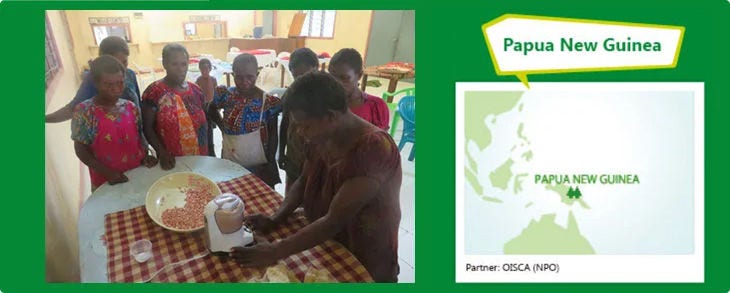
Papua New Guinea has long been home to globally valuable virgin forests. In recent years, however, the further increase in slash-and-burn agriculture, deforestation by developers, and the rapid advancement of oil palm plantations has led to a decrease in forest area. One of the underlying problems that led to this was that local people, struggling to make ends meet, would sell off the forests to developers to generate cash income. Against this backdrop, this project provides technical guidance on stationary organic farming and, at the same time, promotes the development of local industries using agricultural products and the like. This initiative aims to strike a balance between preserving the environment and increasing economic prosperity while also contributing to the nurturing of local leaders.
Tropical Rainforest Conservation (Solomon Islands)
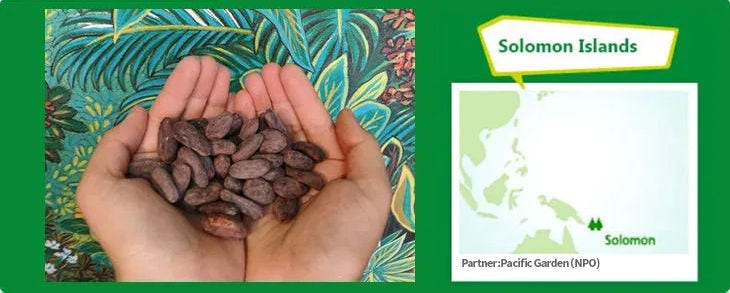
Located in the South Pacific, the Solomon Islands is covered mainly by lush tropical rainforests. Unfortunately, the country previously faced a wide economic disparity between urban and rural areas, leading to slash-and-burn agriculture – which does not require time, effort, or cost associated with land preparation – quickly taking hold in poor farming villages. To address this issue, we conduct lectures and offer practical training in agriculture, animal husbandry, and forest management at a vocational training school to cultivate local leaders as part of efforts to balance environmental preservation and economic development. We also support the operation of antenna stores that sell locally-produced products from different regions to revitalize local industries. Through these activities, we aim to ensure that local communities achieve economic independence and become economically affluent, all while protecting the environment.
Support for South Pacific Countries (Republic of Kiribati)
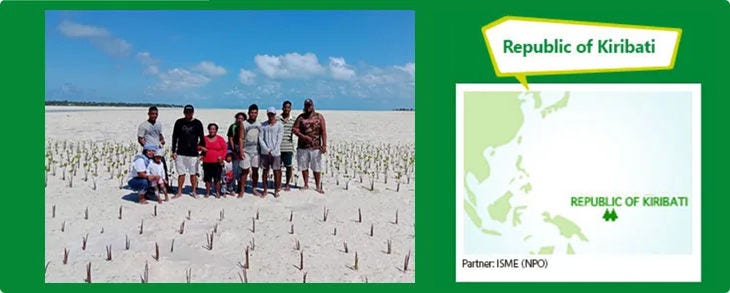
The Republic of Kiribati, situated just below the equator, is an island nation of small coral islands. With a population of about 100,000, the country is exceptionally low-lying and is currently one of the first countries to be experiencing the effects of rising sea levels due to global warming. As the coastline erodes, problems such as homes becoming inundated and seawater flowing into well water have become a regular occurrence. To protect people's homes from the current situation, we are working closely with local communities to plant mangroves. At the same time, we are providing officials from the relevant agency in Kiribati (Ministry of Environment, Lands and Agricultural Development) with guidance on planting and subsequent management techniques and fostering an ecological mindset among the children.
Ken Noguchi: Creating Forests in the Himalayas (Nepal)
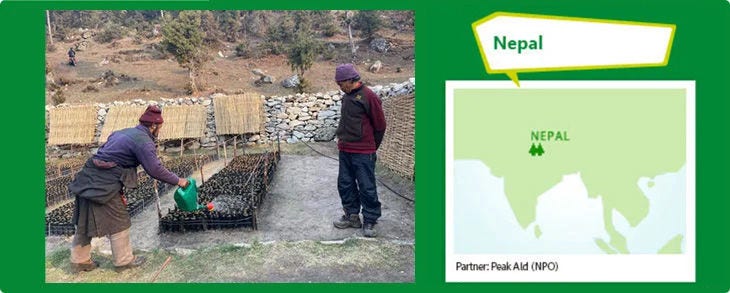
Manaslu, one of the mountains that make up the Himalayas, is also referred to as the "Japanese Mountain" since the first person in the world to reach the peak was Japanese. However, the village of Sama, located at the foot of the mountain, had become desolate due to excessive deforestation. In light of this, a program to reforest the village was initiated. Given that reforestation in cold regions, where plant growth is slow, requires considerable time and human resources, the reforestation process is expected to be arduous. In addition to conducting planting-focused activities, the COSMO Eco Fund provides environmental education to locals. By fostering an awareness of the environment, we aim to empower the local community to manage forests in the future on their own without financial support.
Growing Forests Resilient to Abnormal Weather (Philippines)
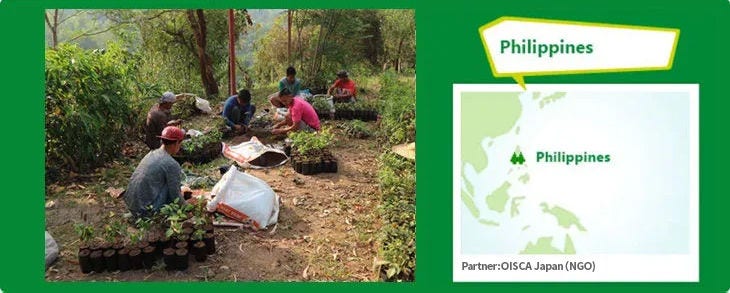
Deforestation progressed during the latter half of the 20th century in Luzon, the largest island in the Philippines. While 86% of the province was once covered by forest, this figure dramatically decreased to around 25% by the 1980s. As a result, the island has been unable to minimize the impact of natural disasters such as major typhoons. Meanwhile, abnormal weather conditions caused by recent climate change have accelerated such damage. To combat the forces of nature, the COSMO Eco Fund began supporting efforts to plant trees that can withstand storms and droughts. The goal is to reforest the island while also educating the local community about the environment.